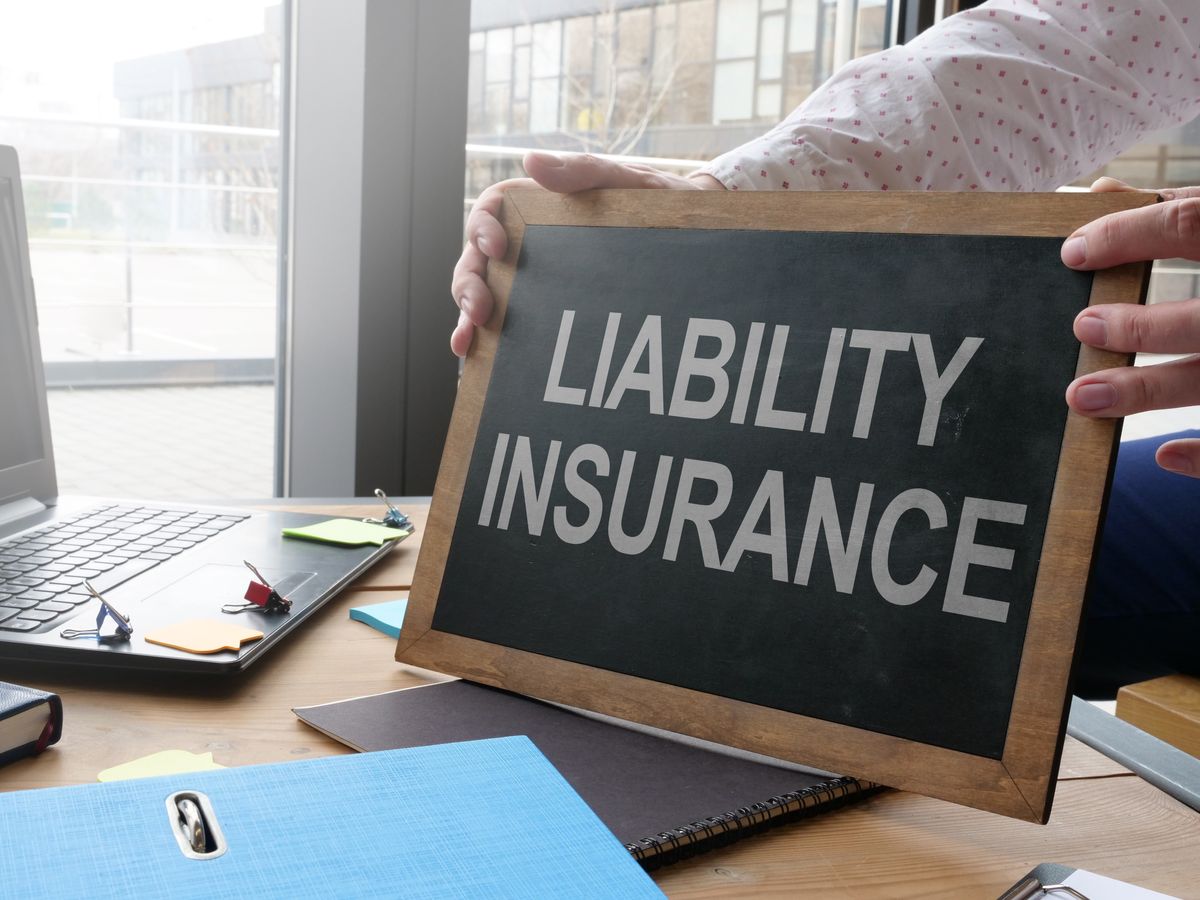
Why You Need Liability Insurance for Your Small Business
By Jeffrey M. Kimmel
Liability insurance is an essential form of protection for your business. Along with providing financial security, it protects you from legal actions and claims made against you that could cause financial strain or even bankruptcy. If your company is faced with a personal injury lawsuit, the legal defense costs and medical bills could have a devastating impact on your business, even if you're not at fault.
Whether you’ve owned your small business for a while or are just getting started, comprehensive liability insurance coverage is a crucial investment to ensure your company's long-term success.
What is liability insurance?
Liability insurance is a type of coverage designed to protect the insured from third-party civil claims or lawsuits arising from negligence on behalf of an individual or organization they manage or represent. It provides coverage for legal defense, settlements, and judgments resulting from lawsuits or claims against the insured. Liability insurance aims to safeguard assets and fulfill financial obligations arising from liability-related incidents.
In other words, liability insurance protects you and and your company when someone else suffers a loss due to your actions or inaction.
Common types of liability coverage for small businesses
Depending on what industry you're in and the type of services you provide, you may need to consider obtaining one or more types of liability coverage. The most common types of coverage that offer financial protection for small businesses include:
General liability insurance
This type of coverage is designed to help protect small businesses against claims related to bodily injury or property damage caused by the company's products or services. It also covers personal injuries such as libel and slander as well as advertising liabilities related to copyright infringement and false advertising.
Professional liability insurance
Professional liability insurance provides protection against claims related to professional advice given by professionals, such as doctors, lawyers, accountants, public relations firms, etc. Examples include malpractice allegations and errors and omissions caused by negligence on behalf of a professional service provider.
Product liability insurance
This type of coverage protects companies from claims related to defective products that cause injury or death due to manufacturing defects or improper labeling/warnings on packaging materials etc.
Cyber liability insurance
Cyber liability insurance protects businesses against data breaches, as well as third-party damages related to cyber incidents, such as lost revenue due to downtime resulting from hacks, etc. This type of policy may also cover costs associated with cyber extortion events where malicious actors threaten a company with public disclosure if ransom demands are not met.
When acquiring liability insurance, it is imperative to evaluate your business's specific risks and liabilities. This assessment will help you choose a policy that provides sufficient coverage. Insurance premiums and coverage limits are determined by various factors, including the nature of the business, industry, revenue, claims history, and desired level of protection. By considering these elements, you can make an informed decision about your insurance needs.
Key considerations when selecting liability insurance
Here are some important factors to keep in mind when choosing the right insurance policy:
Risk assessment and coverage needs
To safeguard your business, identify and evaluate the likelihood and potential severity of risks against your business and determine the appropriate coverage types and limits needed to address them effectively. Also, besides general liability insurance, assess if you need additional coverage tailored to your specific needs, such as professional liability insurance or product liability insurance. Discover if endorsements or riders are available to enhance your policy coverage for specific risks.
Policy coverage and exclusions
To ensure that you're getting comprehensive protection, be sure to review the coverage details of your policy. Pay close attention to any exclusions or limitations that may impact your coverage. Consider the types of liabilities the policy covers, including bodily injury, property damage, or product-related claims.
Policy limits and deductibles
Assess coverage limits to ensure they adequately protect your business. Take into account the deductibles and determine the amount you're willing to pay out-of-pocket before the insurance coverage kicks in. Striking the right balance between cost and coverage is key to finding an affordable and suitable policy.
Compare multiple insurance policies
Don't settle for the first option. Obtain quotes and compare policies from multiple insurers. Evaluate the reputation, financial stability, and customer service of potential insurance providers. Consider the overall value provided by each policy, looking at coverage, premiums, and additional benefits.
Find tailored coverage for your industry
Each industry comes with its own set of unique liability risks. Consult with insurance professionals who specialize in your industry to gain insights into suitable coverage options. Industry associations and peer recommendations can also provide valuable guidance.
Claims process and support
A seamless claims process is essential in times of need. Understand the claims process of the insurance provider, including how easy it is to file claims and the provider's responsiveness. Research the insurer's reputation for handling claims promptly and fairly. Consider the availability of support services, such as legal assistance or risk management resources.
Understanding the importance of liability insurance
If an accident happens and you don't have the proper protections in place, it could result in expensive lawsuits being filed against your company. Since it’s impossible to predict every situation that may arise during daily operations, understanding the benefits provided by a comprehensive liability insurance policy should be a priority.
By thoroughly researching the types of liability insurance available, and purchasing a policy that best meets your needs, you can rest assured knowing that you have taken all necessary steps in providing your organization with a secure financial safety net.
Liability insurance FAQs
Why is liability insurance important in business?
It provides protection against unexpected legal claims and liabilities arising from accidents, product defects, or unforeseen incidents. Moreover, liability insurance helps preserve a positive reputation by demonstrating responsibility and preparedness. Additionally, liability insurance often fulfills contractual requirements. Lastly, in certain industries, liability insurance is a legal obligation, guaranteeing regulatory compliance and delivering comprehensive protection.
What does liability insurance cover in business?
Liability insurance in business offers comprehensive coverage that is essential for protecting your company's financial well-being. It covers various crucial aspects, starting with bodily injury coverage. Property damage coverage addresses personal injury claims. Product liability coverage addresses claims related to faulty or defective products your business manufactures or sells. Advertising injury coverage protects against claims arising from your advertising practices.
What are the types of liability insurance coverage?
Liability insurance offers various types of coverage to address different aspects of potential risks in business. The primary types include:
- General liability insurance
- Professional liability insurance
- Product liability insurance
- Cyber liability insurance
- Employment practices liability insurance (EPLI)
- Directors and officers (D&O) Insurance
- Commercial auto liability insurance
- Liquor liability insurance
- Environmental liability insurance
About the Author
Post by: Jeffrey M. Kimmel
Jeffrey M. Kimmel is the managing partner and CEO of Salenger, Sack, Kimmel, and Bavaro LLP, a New York-based personal injury law firm. He is the coauthor of What Lawyers Don't Know: How to Run a Business and Start Loving Life, and is a legal source for media outlets, such as CNN, NBC, and CBS.
Company: Salenger, Sack, Kimmel & Bavaro
Website:
www.sskblaw.com
Connect with me on
LinkedIn, Facebook, Twitter, and Instagram.




